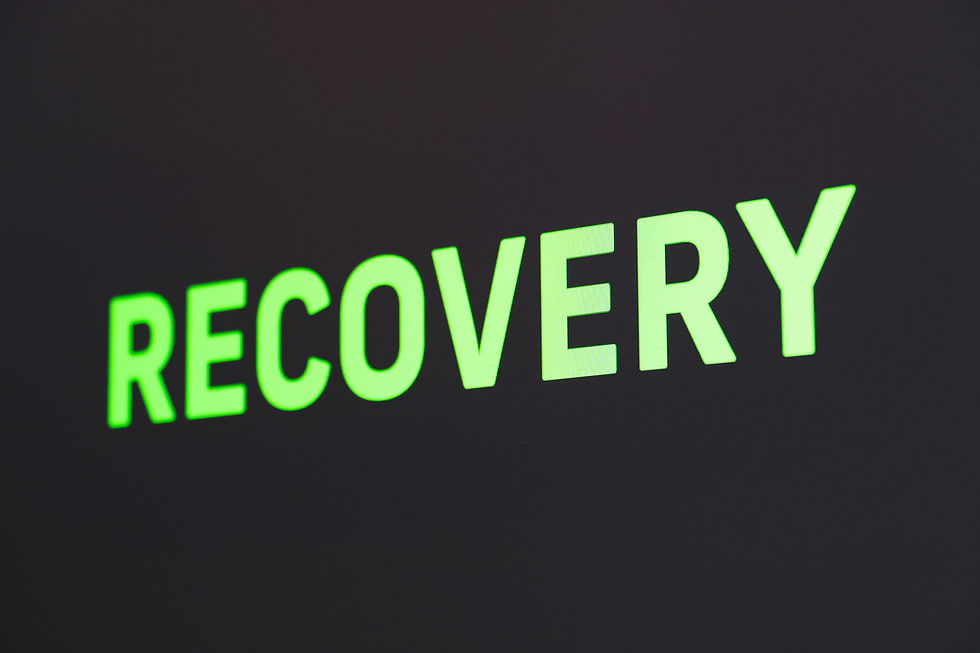Positive Regard: A Powerful Tool in Addiction Recovery
- Sandra Strozier, MA

- Dec 28, 2023
- 3 min read

In the journey of addiction recovery, there's a remarkable tool that counselors and therapists use to help people: it's called "positive regard." This concept comes from a therapy method focused on the person and their feelings. Positive regard is all about showing deep respect, understanding, and acceptance to individuals who are facing tough times because they are struggling with drugs or alcohol. It's like a special kind of support that can make a huge difference in helping people heal, understand themselves better, and make lasting changes. I want to explain the importance of learning how positive regard can positively impact the journey to recovery.
Building Trust and Connection for Addiction Recovery

Imagine trying to talk to someone about your problems, especially if those problems involve addiction. It can be tough to open up and share your thoughts and feelings. That's where trust comes in and is super important in therapy. People who use drugs or alcohol often feel ashamed, guilty, and worried about being judged. Positive regard helps them feel valued and accepted for who they are, no matter what they've done in the past. This makes a strong bond between the person and their counselor or therapist, creating a safe space where they feel okay about talking about their innermost thoughts and feelings. We leave open a door for a person to explore and release their past traumas in a space that is realistic for them.
Boosting Self-Esteem and Self-Worth for Addiction Recovery
Many people who struggle with addiction don't think very highly of themselves. They often see themselves as bad or worthless. Positive regard challenges these negative thoughts by saying, "Hey, you're important, and you can change!" When people feel truly accepted, they start believing in themselves more. This helps them feel better about who they are and how much they're worth.
Taking Responsibility in Addiction Recovery

Positive regard doesn't mean saying it's okay to do bad things; it's more about respecting the person's choices and ability to make decisions. People are more likely to take responsibility for their actions by recognizing that they can make choices and change. They become more in charge of their own lives and their journey to recovery.
Reducing Resistance to Help
Sometimes, people who use drugs or alcohol don't want help because they're afraid of being judged or criticized. Positive regard helps reduce this resistance by making them feel like they're part of a team with their counselor or therapist. They feel they're working together and that their thoughts and opinions matter. This makes it easier for them to get involved in treatment and take control of their recovery.
Boosting Motivation for Change for Addiction Recovery

Wanting to change is a big deal in recovery. Positive regard can increase a person's motivation because it reminds them of their value and that they can change. When people feel respected and valued, they're more likely to set goals for themselves and work hard to have a healthier, substance-free life.
Becoming Stronger
Recovery isn't always easy, and sometimes there are tough moments. Positive regard gives people a solid emotional base that helps them deal with these challenges better. Knowing that they have the support and acceptance of their counselor or therapist helps them be more resilient and determined to overcome difficulties.
In Conclusion


In addiction recovery, positive regard isn't just a technique that counselors and therapists use; it's like a superpower that can change lives. By offering people who struggle with substance use unconditional acceptance, counselors and therapists can help them heal, feel empowered, and make long-lasting changes. The impact of positive regard goes beyond the therapy room. It helps people rebuild their lives, build healthier relationships, and discover their true selves as they journey toward recovery.
About the Author

As a proud native of Atlanta, Georgia, and a "Grady Baby," I am fueled by a deep passion for empowering individuals through evidence-based curriculum within the Metro Atlanta Family Treatment and Juvenile Courts. With an associate degree in Sociology from Georgia Perimeter College and a BS in Urban Policy Studies, specializing in planning and economic development from Georgia State University's Andrew Young School of Policy Studies, I have built a solid educational foundation. Furthermore, I hold a Master of Arts degree in clinical mental health from Clark Atlanta University, School of Counselor Education.
In my current role as an Enforcement Analyst at the U.S. Department of Housing and Urban Development in Atlanta, I am committed to making a positive impact on our community. Beyond my work with HUD, I have also founded DIVAS, Incorporated., a non-profit organization dedicated to empowering young individuals to develop self-confidence and effective communication within their family structures. Through DIVAS, I have extended my reach to assist families in healing from the trauma associated with substance use disorders.
.png)
Keep fighting the good fight!
~Sincerely
LaChun T.